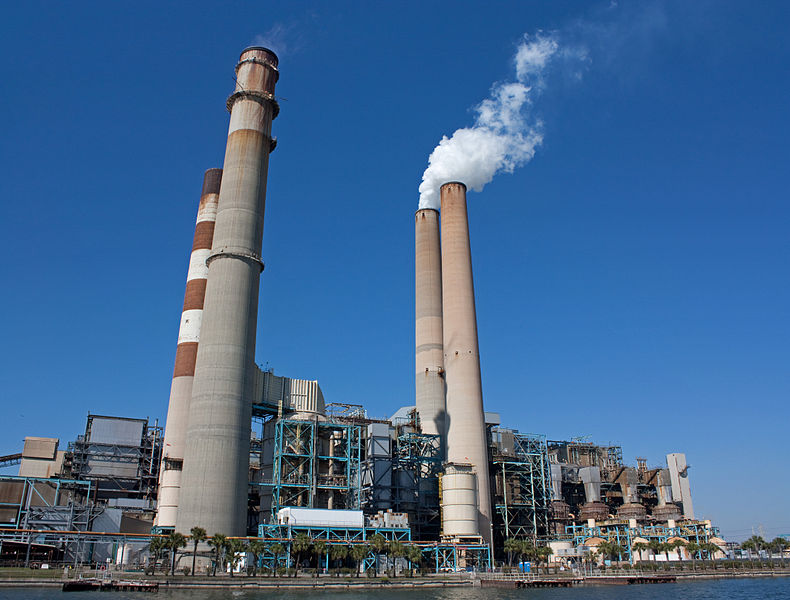Climate Change
Obamacare’s lessons for the future of EPA’s CO2 rule
The survival of the greenhouse gas rule depends on how much people invest based on it
There has (rightly) been a lot of attention paid to the EPA proposed rule controlling greenhouse gas emissions from powerplants pursuant to Clean Air Act Section 111(d). All of that analysis – how effective the rule will be; how it will be implemented; the prospects for successful legal challenges to the rule – is important. …
Continue reading “Obamacare’s lessons for the future of EPA’s CO2 rule”
CONTINUE READINGThe Top 10 Reasons Why EPA’s Powerplant Rule is like Obamacare
Death Panels! War on Coal!
Opponents in Congress have likened EPA’s proposed rule covering greenhouse gas emissions to Obamacare. In fact, one called it “Obamacare 2.0”. In a helpful spirit, I thought it would be edifying to list the similarities: 1o. The powerplant rule and Obamacare both give state government a major role. 9. They were both endorsed by President Obama. …
Continue reading “The Top 10 Reasons Why EPA’s Powerplant Rule is like Obamacare”
CONTINUE READINGJudicial “Smoke Signals” and the 111(d) Rule
In an earlier post, I suggested that EPA’s decision about how broadly to write the final version of the 111(d) rule might be affected by the Supreme Court’s decision in the pending UARG case. I made the suggestion without much explanation, and it apparently didn’t come across very clearly. So I thought it would be worth …
Continue reading “Judicial “Smoke Signals” and the 111(d) Rule”
CONTINUE READINGAddressing Climate Change Without Legislation
A new report from UC Berkeley looks at the underused powers of the US Department of the Interior.
Now that the Environmental Protection Agency has announced its proposed rules for restricting greenhouse gas emissions from existing power plants, the climate focus of EPA and the states will first be on polishing the rules for final approval, then on the anticipated law suits, and then on the development of state plans to meet the …
Continue reading “Addressing Climate Change Without Legislation”
CONTINUE READINGThe Legal Basis for the 111(d) Rule
EPA has structured the rules to protect against legal challenges.
Megan has done a great job of explaining the background of the rules and summarizing the proposal in her blog posts. I just wanted to add a quick note about how EPA has structured its rules in light of possible legal challenges. The fundamental issue facing EPA is how to define the “best system” for reducing …
Continue reading “The Legal Basis for the 111(d) Rule”
CONTINUE READINGEPA’s Proposed Greenhouse Gas Emissions Rules Are Remarkably Business-friendly
Business wins on baseline year, flexible compliance methods will keep costs down
President Obama’s EPA will tomorrow issue proposed greenhouse gas limits for existing power plants. By all accounts the rules will be a remarkable step forward in the fight against global warming, with the U.S. finally demonstrating significant leadership on an issue on which it has lagged behind for more than a decade. And yet from …
Continue reading “EPA’s Proposed Greenhouse Gas Emissions Rules Are Remarkably Business-friendly”
CONTINUE READINGObama’s Clean Air Act 111d Rules Are Legally Required, Not an End Run Around Congress
Massachusetts v. EPA triggered the President’s Action
On Monday, President Obama is expected to release proposed regulations to cut carbon emissions from existing power plants. Leaks to date suggest that the rules, which will cover 40 percent of total U.S. greenhouse gas emissions, will be ambitious and far-reaching, requiring cuts of approximately 20 percent from the electricity sector. We can already anticipate …
CONTINUE READINGGuest Blogger Kate Konschnik: EPA’s 111(d) Authority – Follow Homer and Avoid the Sirens
Kate Konschnik is the Director of Harvard Law School’s Environmental Policy Initiative. The views expressed in this blog post are her own. Thirty years ago, Chevron v. NRDC set the standard for judicial deference to an agency’s statutory interpretation. In that case, the Supreme Court upheld EPA’s interpretation of Clean Air Act language. This month, …
CONTINUE READINGOf Corn and Climate
Trouble may be brewing in the corn belt.
We continue to gain a better understanding of the impacts of climate change, which are sometimes subtle and unexpected. Two articles in Science report significant new research. The first report comes from two researchers at the University of Illinois. Corn, like other plants, needs to pull CO2 from the air for photosynthesis. But the same tiny …
Continue reading “Of Corn and Climate”
CONTINUE READINGAn Opening for Climate Adaptation?
Marco Rubio seems willing to admit that climate change exists and is causing real problems. That’s a start.
During an interview with ABC’s Jonathan Kent, Marco Rubio made a very interesting statement about climate change. He took the standard anti-science position about the causes of climate change. “I do not believe that human activity is causing these dramatic changes to our climate the way these scientists are portraying it,” he said. He went on …
Continue reading “An Opening for Climate Adaptation?”
CONTINUE READING










